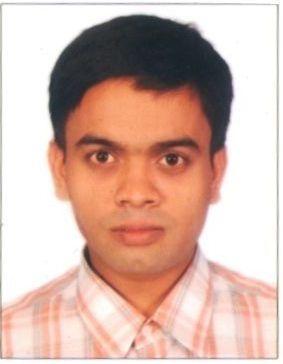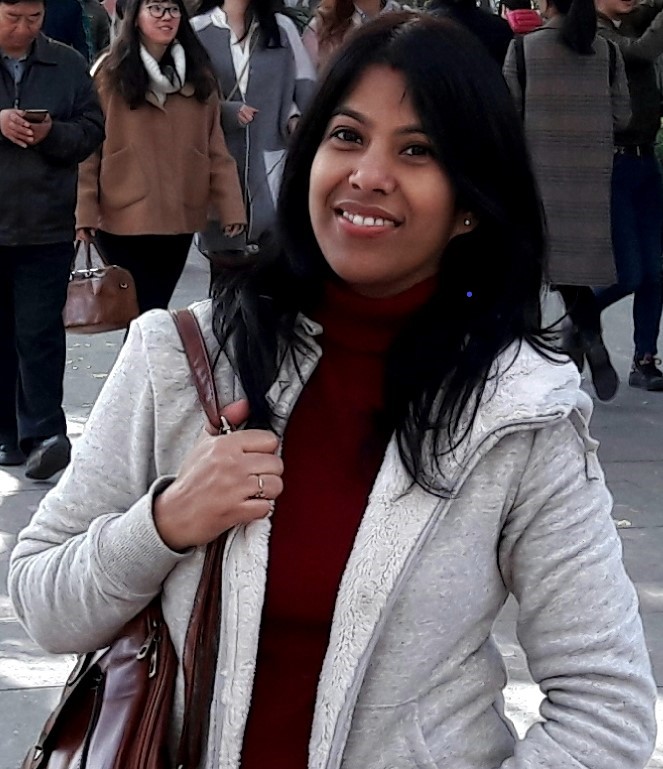Plant Biotechnology
Course Attendees
Still no participant
Course Reviews
Still no reviews
Course Name : Plant Biotechnology
Code(Credit) : CUTM1468(3-2-1)
Course Objectives
The objective of the course is to give students new knowledge by handling of classical and modern plant biotechnology processes
Understanding of biotechnological processes has also applicative value in pharmaceutical and food industry, in agriculture and in ecology.
Course Outcomes
| COs | Course outcomes | Mapping COs with POs (High-3, Medium-2, Low-1) |
| CO1 | Develop fundamental knowledge in Plant Molecular Biotechnology and its application in laboratory and industry settings | PO1-3, PO2-3, PO3-2, PO4-3, PO7-2 |
| CO2 | Laboratory skills on integrative approach for biotechnological experiments specifically on basic, techniques in micro-propagation | PO1-3, PO2-3, PO3-3, PO4-3, PO7-2 |
| CO3 | Design of experiments for complex scientific problems towards conservation of plant species | PO1-2, PO2-3, PO3-3, PO4-3, PO7-3 |
| CO4 | Experimental skills to conserve plants for sustainability | PO1-2, PO2-3, PO3-3, PO4-3, PO7-3 |
Course Syllabus
Module-I
Plant Tissue Culture Historical perspective; Composition of media; Nutrient and hormone requirements (role of vitamins and hormones); Totipotency; Organogenesis; Embryogenesis (somatic and zygotic); Protoplast isolation, culture and fusion;
Practice1: Preparation of MS medium.
Practice2: Demonstration of in vitro sterilization and inoculation methods using leaf explants of tobacco, Datura, Brassica etc.
Practice3: Demonstration of in vitro sterilization and inoculation methods using nodal explants of tobacco, Datura, Brassica etc.
Practice4: Isolation of protoplasts.
Module-II
Tissue culture applications (micropropagation, and regenesis, virus elimination, secondary metabolite production, haploids, triploids and hybrids; Cryopreservation, Germplasm Conservation).
Practice5: Study of anther, embryo and endosperm culture micro propagation, micropropagation, somatic embryogenesis & artificial seeds through photographs
Module-III
Recombinant DNA technology Restriction Endonucleases (History, Types I-IV, biological role and application) Restriction Mapping (Linear and Circular); Cloning Vectors: Prokaryotic (pUC 18 and pUC19, pBR322, Ti plasmid, BAC) Lambda phage, M13 phagemid, Cosmid, Shuttle vector; Eukaryotic Vectors (YAC).
Practice6: Restriction digestion and gel electrophoresis of plasmid DNA.
Practice7: Construction of restriction map of circular and linear DNA from the data provided
Module-IV
Gene Cloning Recombinant DNA, Bacterial Transformation and selection of recombinant clones, PCR-mediated gene cloning; Gene Construct; construction of genomic and cDNA libraries, screening DNA libraries to obtain gene of interest by genetic selection; complementation, colony hybridization; PCR
Practice 8: Isolation of plasmid DNA.
Module-V
Methods of gene transfer Agrobacterium-mediated, Direct gene transfer By Electroporation, Microinjection, Microprojectile bombardment; Selection of transgenics– selectable marker and reporter genes (Luciferase, GUS, GFP).
Practice 9: Study of methods of Agrobacterium-mediated gene transfer through photographs
Practice 10: Study of methods of gene transfer through photographs: direct gene transfer by electroporation, microinjection, microprojectile bombardment.
Module-VI
Applications of Biotechnology Pest resistant (Bt-cotton); herbicide resistant plants (Round Up Ready soybean); Transgenic crops with improved quality traits (Flavr Savr tomato, Golden rice); Improved horticultural varieties (Moondust carnations)
Practice11:Study of steps of genetic engineering for production of Bt cotton, Golden rice through photographs.
Practice12: Study of steps of genetic engineering for production of Flavr Savr tomato through photographs
Module-VII
Role of transgenics in bioremediation (Superbug); edible vaccines; Industrial enzymes (Aspergillase, Protease, Lipase); Genetically Engineered Products–Human Growth Hormone; Humulin; Biosafety concerns.
Text Book:
Bhojwani, S.S. and Razdan, M.K., (1996). Plant Tissue Culture: Theory and Practice. Elsevier Science Amsterdam.The Netherlands.
Glick, B.R., Pasternak, J.J. (2003). MolecularBiotechnology- Principles and Applications of recombinant DNA. ASM Press, Washington.
Bhojwani, S.S. and Bhatnagar, S.P. (2011). The Embryology of Angiosperms.Vikas Publication House Pvt. Ltd., NewDelhi. 5thedition.
Snustad, D.P. and Simmons, M.J. (2010). Principles of Genetics. John Wiley and Sons, U.K. 5thedition.
Reference Book:
Stewart, C.N. Jr. (2008). Plant Biotechnology & Genetics: Principles, Techniques and Applications.John Wiley & Sons Inc. U.S.A.
Session 3
Nutrient and hormone requirements (role of vitamins and hormones)
Session 8
Practice
Demonstration of in vitro sterilization and inoculation methods using leaf explants of tobacco, Datura, Brassica etc.
Session 9
Practice
Demonstration of in vitro sterilization and inoculation methods using nodal explants of tobacco, Datura, Brassica etc.
Session 11
Tissue culture applications -micropropagation and regenesis
Session 12
Tissue culture applications: virus elimination
Session 13
Tissue culture applications: secondary metabolite production.
Session 14
Tissue culture applications: haploids, triploids and hybrids
Session 15
Tissue culture applications: Cryopreservation, Germplasm Conservation.
Session 16
Practice
Study of anther, embryo and endosperm culture micro propagation, micropropagation, somatic embryogenesis & artificial seeds through photographs.
Session 17
Recombinant DNA technology Restriction Endonucleases (History, Types I-IV).
Restriction Endonucleases type I
Session 18
Restriction Endonucleases (biological role and application)
Session 20
Cloning Vectors: Prokaryotic (pUC 18 and pUC19)
Session 25
Practice
Restriction digestion and gel electrophoresis of plasmid DNA.
Session 26
Practice
Construction of restriction map of circular and linear DNA from the data provided
Session 27
Session 30
Session 32
Screening DNA libraries to obtain gene of interest by genetic selection
Session 35
Practice
Study of anther, embryo and endosperm culture micro propagation, micropropagation, Isolation of plasmid DNA.
Session 36
Methods of gene transfer Agrobacterium-mediated gene transfer
Session 37
Direct gene transfer By Electroporation, Microinjection, Microprojectile bombardment
Session 38
Selection of transgenics– selectable marker and reporter genes (Luciferase)
Session 39
Selection of transgenics - reporter genes (GUS, GFP).
Session 40
Practice
Study of methods of Agrobacterium-mediated gene transfer through photographs.
Session 41
Practice
Study of methods of gene transfer through photographs:
Direct gene transfer by electroporation, microinjection, microprojectile bombardment.
Session 42
Applications of Biotechnology Pest resistant (Bt-cotton)
https://www.youtube.com/watch?v=3aLj1WmzL98
Session 43
Herbicide resistant plants (Round Up Ready soybean)
Session 44
Transgenic crops with improved quality traits (Flavr Savr tomato, Golden rice)
Session 45
Improved horticultural varieties (Moondust carnations)
Session 46
Practice
Study of steps of genetic engineering for production of Bt cotton, Golden rice through photographs.
Session 47
Practice
Study of steps of genetic engineering for production of Flavr Savr tomato through photographs
Session 48
Role of transgenics in bioremediation (Superbug)
Session 50
Industrial enzymes (Aspergillase, Protease, Lipase)
Session 51
Genetically Engineered Products–Human Growth Hormone
Session 52
Genetically Engineered Products–Humulin; Biosafety concerns
https://www.youtube.com/watch?v=5A3K6aCwbCU
Case Studies
Case Studies
Our Main Teachers

Dr. Shantanu Bhattacharyya
Assistant Professor, Department of Botany, School of Applied Science ( Bolangir Campus)
VIEW PROFILEDr. Shantanu Bhattacharyya works as an Assistant Professor, Department of Botany, at the Centurion University of Technology and Management, Bolangir Campus, Odisha, India. He has received his M.Sc. (Life Science- Botany) and M.Phil (Life Sciences) from Sambalpur University, Orissa, India and B.Ed. from Singhania University, Rajasthan India. He qualified GATE-2007, CSIR-UGC NET LS -2008. He […]

Dr Rukmini Mishra is presently working as an Assistant Professor (Botany), School of Applied Science, Centurion University of Technology and Management. She has a PhD in Agricultural Biotechnology from ICAR-National Rice Research Institute, India. After PhD, she received the prestigious Young Scientist Award from the Dept. of Science & Technology, SERB, Govt. of India to […]

